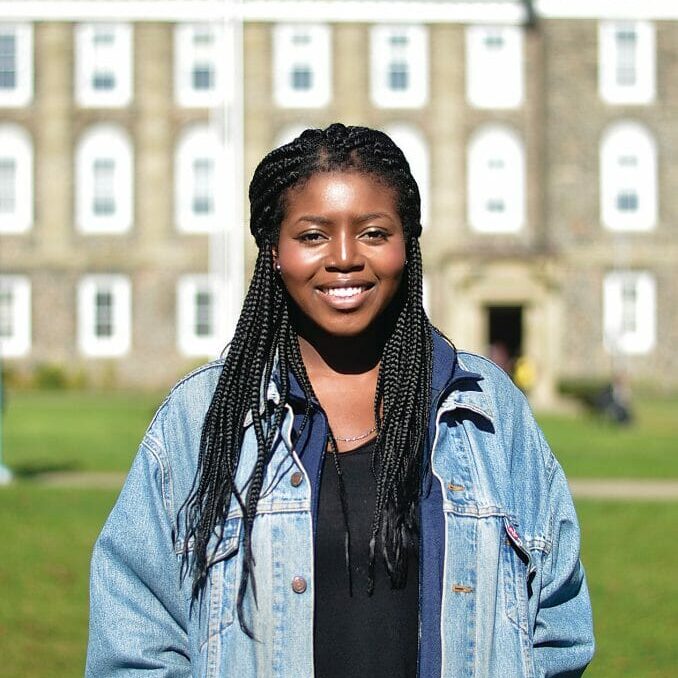
Good People Doing Good Things: Chantelle Fynn
Chantelle Fynn is bringing awareness to non-communicable diseases in Nova Scotia
Chantelle Fynn is a fourth-year student at Dalhousie University doing a double major in environmental and political sciences. Over the summer, Fynn interned with the World Health Organization (WHO,) working on issues surrounding noncommunicable diseases.
According to WHO, noncommunicable diseases (NCDs) are chronic diseases with long durations and slow progression. They account for 63% of all annual deaths, and about 80% of those occur in middle to low-income countries. In most cases, NCDs are also largely preventable.
These diseases include cardiovascular disease, cancers, respiratory disease, and diabetes.
“I was very interested in indoor air pollution,” said Fynn.
“My whole family is from Ghana and they do use coal instead of the normal electricity or gas that we usually use. It’s had a huge problem with respiratory diseases in Africa. I remember reading about all these things on the WHO website, and thinking ‘okay this would be a good opportunity to learn more about this, and learn more about how this whole system works.’”
Fynn signed up on the WHO’s website to be a summer intern from May to July 2017 in Switzerland. Her role was to be part of the Global Coordination Mechanism on noncommunicable diseases.
During her time at WHO, she worked towards ensuring that countries were up to date and following guidelines for preventing NCDs, participated in meetings in the UN room, and witnessed the World Health assembly. Her main job was working on NCDs and Me – a section of the WHO website specifically for NCDs.
“It’s where anyone can type up what connection they have with noncommunicable diseases, whether they are affected by it, or whether they worked helping people with NCDs,” said Fynn. “It goes onto the website, and it has their photos and their names, and just what they went through.”
“It’s a cool way to disseminate information about noncommunicable diseases cause lots of people know about them separately, but not a lot of people know about them together they are actually a huge problem in low, middle-income countries.”
Sharing what she learned with Nova Scotian’s
When Fynn was working with WHO, she realized that NCDs were also a huge problem in Nova Scotia; she made it her goal to translate the work she was doing overseas to something she could do at home.
“I just wanted to show people here that you can have your story heard if you ever had a situation with noncommunicable diseases … and how great it would be, because we just want more people involved. It’s just something that I don’t think a lot of people know about, especially here in Canada”
According to Statistics Canada, Nova Scotia has one of the highest rates of cancer and diabetes in Canada. Nova Scotia is in the middle of the pack for cardiovascular and respiratory diseases.
“These are preventable diseases, you know, the ones we are working towards, these are very preventable. So if I can just spread the word, and at least have people know that together these are all diseases that have a chance.”
Fynn said the hardest part is changing what people are used to, but awareness is the first step.
“I think anything afterwards is just great, because once you’re aware then it’s up to you,” said Fynn. “Then we’ll have steps to act on those things we say. We can’t put any actions in place if people aren’t aware.”
Next for Fynn is figuring out what she’s going to do after university. WHO doesn’t allow interns to come back as an intern for a second year, but she strongly encourages those interested to check out the opportunities WHO has to offer.






